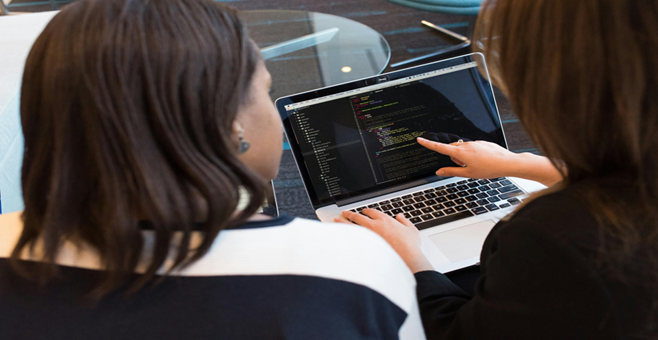Future of Assignments: How AI, Automation & New Assessment Styles Are Changing What Universities Expect
Do you ever wonder why the goal keeps shifting in your student assignments? Before 2022, assignments required you to browse through tens or hundreds of pages to get a grip on the topic you are addressing. You had sieve through a multitude of papers, books, and government reports on specific topics to narrow down to a few that directly connect with your thesis for your assignment. With the launch of ChatGPT in late 2022, the research process evolved in ways that continue to influence the education sector and how assignments, tests, and exams are conducted.
We are in the new era of generative intelligence where students can narrow down their research with specific questions as per their assignment rubric. Widely celebrated, ChatGPT and other AI automation tools have made processes easier. Faced with an assignment or test, the thought that crosses your mind is; ‘What if I asked ChatGPT or some AI tool to just do this for me?’
Across world universities, students and their professors are struggling to see how AI can be used in a manner that promotes learning and avoids plagiarism. Many questions arise. For example, does the use of AI and automation tools such as ChatGPT and Gemini amount to plagiarism. In the traditional sense, plagiarism referred to copying other people’s work without citing such source of information and passing it as one’s own.
However, AI and automation tools are generative – meaning the output does not amount to copying another person’s work. With this in mind, students are questioning not just how they should complete assignments, but why assignments are even set the way they are in the age of AI and automation. Universities know it too—and they’re already reshaping assessments, teaching, and grading systems to adapt to a digital-first, AI-supported world.
Welcome to the future of assignments. Let’s dive deep into how AI, automation, and new assessment styles are completely changing what universities expect from students—and more importantly, how you can survive (and thrive) in this new academic landscape.
1. AI Isn’t Replacing Students — But It Is Replacing Lazy Assignments
Back in the day, writing a standard three-page essay might have been enough to impress a professor. Today? Tools like ChatGPT, Deepseek, and Gemini can write a solid essay in a few minutes. What does this mean to universities? Rethinking why students should write essays that can be generated by AI in minutes.
Instead of recycling generic essay questions, many professors are shifting to:
- In-class assessments (to prevent AI misuse).
- Personalized essays (reflecting on your own experiences or case studies).
- Oral presentations or viva-style defenses (because AI can’t argue with your professor).
According to a 2025 Guardian article, the use of AI in assignments and projects has increased over the last year. Many students report that they use AI to summarize research, come up with ideas for their assignments, and even tackle STEM assessments. Universities have responded with new policies to curb cheating by the use of AI. These changes are meant to make assignments harder to “copy-paste” and more focused on critical thinking, creativity, and application—the things AI can’t easily fake.
2. Automation Is Changing Deadlines (But Stress Is Still Real)
Here’s some irony: while AI can help students work faster, automation is also speeding up universities’ expectations. Submissions, plagiarism checks, and grading are increasingly automated through systems like Turnitin, Blackboard, and Canvas.
- Assignments are cross-checked with global databases instantly.
- Essays are flagged for AI-generated content in seconds.
- Professors get AI-generated grading rubrics, so feedback comes quicker.
This means deadlines are tighter, late submissions are riskier, and “hoping the professor won’t notice” is no longer an option.
But here’s the truth: students are human. Working on coursework, family, jobs, and other social commitments. The future of assignments needs to be evaluated in relation to how AI can be harmonized in assignments to avoid cheating and misuse of other automation tools. The future of assignments is about students learning to adapt faster than ever before.
3. Technical Courses Are the New Battlefield
Generating an essay on literature or psychology paper using AI is easy. However, technical subjects such as MATLAB, Simulink, Statistics, Nursing simulations, or Advanced Engineering projects require students’ direct participation. It is in this area that students tend to struggle most—and it’s also where AI isn’t a full solution.

Truth be told, AI can’t run lab experiments for you. It can’t build a working electrical circuit in class. In conclusion, it definitely can’t explain your process in Microsoft Viva.
This is why more students in STEM and technical courses still need academic support services.
If you’ve ever stared at a Simulink model or a statistical regression that just wouldn’t make sense, you know what I’m talking about. Students are turning to Expert Tutors to avoid cheating and ensure they actually understand the concepts professors expect them to master.
4. Universities Are Shifting to “Assessment as Learning”
Here’s a big trend: Universities are now blending learning activities with assignments. That means assignments themselves are being used as a teaching tool.
For example, professors use:
- Case-based assessments where you apply theories to real companies.
- Group projects simulating real-world problems (like consulting-style reports).
- Portfolio-based assessments (multiple small tasks instead of one big essay).
The idea? Professors don’t just want to test your knowledge—they want to see you apply it in real-world situations. A welcome change in the education sector, some students find the new reality overwhelming as many of them report being unprepared for new assessment styles.
That’s why academic support services are no longer just about “help me write an essay.” They’re about helping students adapt, strategize, and succeed in a constantly changing assessment system.
5. AI Is Creating a “Double Standard” of sorts
Whereas AI and other automation tools are now mainstream, their use and application remain a subject of controversy. Here’s the elephant in the room: professors say “don’t use AI.” On the other hand, universities are using AI behind the scenes. From grading, plagiarism checks, and predictive analytics, AI is everywhere in higher education.

This double standard frustrates students. After all, if AI can helps professors work more efficiently, why shouldn’t it help students too?
Going forward, universities will likely move toward adopting transparent AI policies. Some courses may allow AI as a “study tool” (like Grammarly or ChatGPT for brainstorming), while others may ban it entirely. The key takeaway for students will be knowing where the line is drawn—and how to stay ahead of shifting rules.
6. Student Life vs. Assignments: The Balance Is Getting Tougher
Since AI tools are now a normal part of life, let’s get real for a second. You need to see AI as a partner in your educational journey. You also have family, friends, work, and social groups that need your time. Seek out a trusted assignment and academic support services that support your overall learning experience
It is a sure way of reclaiming your time while still keeping their grades up. Finding this balance will help you avoid the mental stress that assignments bring while trying to live a full life.
7. Why Academic Support Services Are Here to Stay
With all these shifts—AI tools, automation, new assessment styles—it’s no wonder students are turning to expert academic support. To be clear, this is not cheating.
It’s about:
- Guidance on complex topics (like Statistics, Nursing simulations, or Engineering projects).
- Time management (delegating tasks when you’ve got multiple deadlines).
- Improved grades (working smarter, not just harder).
- Mental health support (because burnout is real).
Think of it like having a personal trainer for your academics. Sure, you could technically figure it out on your own—but why struggle alone when there are experts who’ve already mastered it?
And that’s where our Top Tutors come in. Whether you’re battling a MATLAB nightmare, a last-minute Nursing case study, or just don’t have the bandwidth for another 3,000-word essay, our top tutors are here to help—24/7, across time zones, and always focused on quality.
What is the way forward?
Universities across the world (UK, US, and beyond) are demanding more adaptability, creativity, and critical thinking than ever before. AI and automation are shaking up the old system, and students are stuck navigating deadlines, jobs, social life, and new expectations.
At the end of the day, your degree isn’t just about grades—it’s about balance, growth, and building a future you’re proud of.
Need urgent help with assignments, technical projects, or essays? Don’t stress. Our top tutors are available 24/7 to help you beat deadlines, master tough concepts, and boost your productivity.
Click here now to get expert academic support and reclaim your time.
